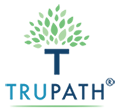What is Klonopin?
Clonazepam is the name of the drug branded as Klonopin. Klonopin comes usually as tablets or pills, most often prescribed for anxiety and depression disorders, it’s also sometimes prescribed for people experiencing chronic pain. Many abusers of this drug start taking Klonopin as part of a medication regime.
The class of drugs Klonopin falls under (benzodiazepines) works by boosting the neurotransmitter release GABA in the brain. The normal production of GABA happens during stressful and tense times, neutralizing extra adrenaline produced during situations where fight-or-flight might be triggered. If left unchecked, the brain chemicals GABA puts the brake on can cause chronic feelings of panic and anxiety.
Klonopin Effects
People with conditions like a bipolar disorder—which exacerbates conditions like insomnia and depression—need greater amounts of GABA in their systems than their brains can normally produce. Klonopin’s benzodiazepine nature helps it also treat seizures and epilepsy. If users mix Klonopin use with other drugs and alcohol, the risk of a fatal overdose skyrocket.
The U.S. Drug Enforcement Administration classifies Klonopin as a risky Schedule IV drug under the Controlled Substance Schedule. The effectiveness of Klonopin and the complicated problems of unregulated, long-term use require federal oversight and regulation. It’s important to know the effects of long-term clonazepam abuse and to look for the signs.
Signs of Klonopin Abuse and Addiction
Benzodiazepines (benzos) like Klonopin carry a significant potential for abuse. For this reason, it is especially important for any individual who takes Klonopin to know the symptoms of addiction:
- Taking greater amounts of Klonopin than intended or needed
- Not being able to stop even if desired
- Spending excessive time and energy getting, using, and recovering from use
- Cravings or obsessive thoughts
- Unable to perform important personal, professional, or educational responsibilities
- Continuing to use it even though it persistently causes or worsens problems
- Cutting back on activities related to friends, family, hobbies, or work
- Using Klonopin even when it results in risky situations
- Experiencing Klonopin tolerance and having to take more over time
- Withdrawal symptoms when the dose lessens
- Doctor shopping—going to different doctors to get more pills than medically necessary, or selling extra pills to make money.
If you or someone you know is struggling with Klonopin abuse and addiction, contact a rehab treatment center for detox and recovery help.
Klonopin Withdrawal Symptoms
Even with managed medical prescription use, suddenly stopping taking Klonopin after using it for one month can trigger debilitating and painful withdrawal symptoms. Most doctors work with their patients to slowly wean off of Klonopin to mitigate the effects of benzo withdrawal. Withdrawal symptoms include:
- Elevated heart rate and blood pressure
- Insomnia
- Nightmares
- Hallucinations
- Severe weight loss
- Muscle cramping and spasms
- Seizures
Attempting to stop a Klonopin habit of cold turkey or detox at home can result in serious medical complications, sometimes leading to physical or neurological damage. The best and safest way to get off Klonopin is under the supervision of a medical care team at a licensed and accredited treatment facility utilizing dual diagnosis (the consideration of mental health factors of addiction), inpatient treatment, outpatient treatment, and partial hospitalization programs.
Long Term Side Effects of Klonopin Abuse
Long-term use and abuse of Klonopin have been linked to:
- Overdose, sometimes fatal
- Multi-drug abuse
- Drowsiness
- Poor concentration
- Muscle weakness
- Mental confusion
- Vertigo
- Episodic memory loss
- Aggression
- Hostility
- Antisocial behavior
- Depression
- Emotional blunting
- Birth defects in unborn babies
- Short-term withdrawal symptoms, including seizures
- Protracted withdrawal symptoms
- Infection
- Insomnia
Klonopin Addiction Treatment
TruPath—a nationwide network of addiction treatment centers—offers a complete continuum of care at their treatment centers. Their levels of care revolve around the dual diagnosis and holistic interventions in inpatient, outpatient, and partial hospitalization programs. TruPath clients have access to medical care, targeted therapy like CBT (cognitive behavioral therapy) and individual, group, and family sessions, and a variety of recovery opportunities like counseling and transitional help. Call TruPath today to see how detox and drug rehab will set you on the right path to sober living.
